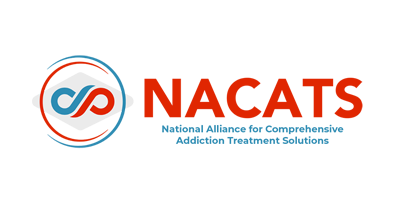
Your reality includes some scary things. Just last week, you shot up like usual and the heroin seemed stronger than normal, so you felt pretty high. On your way to bed that evening, you brushed your teeth and headed toward the bedroom like it was any other night.You fumbled with the doorknob but couldn’t get it to work, then crumpled yourself into a heap on the floor beside it.
The next thing you remember, you’re sitting in a bathtub while people pour ice, cold water, and frozen vegetables all over you. You’re not sure what’s going on, but you overhear EMTs asking what you’ve taken and how much has been ingested. You can barely keep your eyes open and plead with them all to just leave you alone.
You didn’t know it at the time, but the heroin you took wasn’t any stronger than usual. The difference was that this time, you mixed it with alcohol. You do know, however, how lucky you are to be alive, writing about your experience in a Reddit thread from the comfort of your home.
At ReVIDA® Recovery, we understand heroin and alcohol use disorders. We know that not everyone is the same so their treatment plans shouldn’t be the same, either. If you’re managing an alcohol or heroin use disorder, our caring staff can help with every stage of your recovery so that you never have to walk through it alone.
In this article, we explain why alcohol and heroin are such a dangerous combination, and we share the symptoms of an overdose so you know what to look for if you or someone you care about experiences an overdose.
Table of Contents
The High Stakes of Combining Alcohol and Heroin
Alcohol and heroin are a dangerous combination that will always put a person at risk of overdose. In 2021, opioids (like heroin) were tied to 80% of all fatal drug overdoses in Tennessee. Understanding how alcohol and heroin react, and knowing the signs of a heroin overdose, could one day save the life of someone you care about.
Mixing any type of drug with another is dangerous, but drinking alcohol is such a common activity that it’s easy to forget it’s also a drug. Whether it’s a prescription, over-the-counter, or illicit drug, adding alcohol to the mix will intensify the effects and put you at risk of an overdose.
When the drug you’re adding to the mix is an opioid, the risk of overdose is even greater, since opioids are a class of medication with known interactions to alcohol.
Alcohol paired with the opioid heroin is one of the worst combinations that exist, since (even among its opioid counterparts), heroin is an exceptionally strong substance. To complicate matters, alcohol and heroin both fall into the “depressant” category, making the combination especially potent.
Additionally, if you’re taking any prescription medication or other substances, such as benzodiazepines or sedatives, the combination of alcohol and heroin becomes even more dangerous.

What Are the Dangers of Mixing Alcohol and Heroin?
Alcohol and heroin are both central nervous system depressants meant to slow down brain activity. When you put them in your body, they both go to work slowing down your body’s important brain and respiratory functions. Combining the two can easily push your body beyond what it’s capable of handling.
Here are some of the things that can happen if you pair alcohol with heroin:
- Respiratory depression: The combination of two depressants can slow your breathing and heart rate down to the point where it stops completely.
- Increased risk of overdoing it: Any amount of heroin is “overdoing” it (it isn’t legal in any U.S. state), but drinking alcohol affects your judgment, increasing the chances that you’ll accidentally take too large a dose. Too much of the potent opioid puts you at great risk for a potentially lethal heroin overdose.
- Poor judgment leading to high-risk behavior: Because alcohol impairs judgment, drinking can lead to even riskier behavior when taken with heroin. For example, the person might end up sharing needles and increasing their risk of infections such as HIV or hepatitis.
- High risk of overdose: Your overdose risk increases dramatically and may even become fatal.
The dangers of mixing alcohol and heroin are very serious. If you feel that it’s difficult to abstain from alcohol, or if you use heroin and are looking for a way to stop, a caring and passionate treatment center such as ReVIDA® Recovery can help you find a safe and effective road to recovery that fits your unique needs.
Signs of Heroin and Alcohol Disorder: Recognizing the Red Flags
If someone you care about is taking heroin or managing a heroin use disorder, they may exhibit any number of symptoms. Signs of a heroin use disorder may include:
- Physical symptoms: Constricted pupils, unsteady movements, slurred speech, and a tendency to nod off unexpectedly
- Behavioral symptoms: Secretive behaviors, mood swings, social withdrawal, neglected responsibilities, loss of interest in favorite activities or hobbies
- Health symptoms: Recurring respiratory and skin infections, liver disease, or gastrointestinal troubles
- Heroin Withdrawal symptoms: Flu-like symptoms, vomiting, diarrhea, sweating, chills, muscle and joint pain, abdominal cramps
There is no such thing as safe heroin use, as this substance always puts the person at risk of overdose. Because it’s unregulated, you can’t be sure what other substances, such as fentanyl, it may contain. Alcohol use disorder may range from very mild to severe and does not necessarily imply that the person is an alcoholic.
Signs of an alcohol use disorder may include:
- Difficulty abstaining from alcohol
- Frequently drinking more than what you meant to
- Swearing off drinking or promising to cut back, but quickly returning to your old habits
- Continued drinking despite complaints or negative effects at work, home, or in social relationships
- Needing to drink more to achieve the same effects
- Experiencing withdrawal symptoms such as nausea or shakiness
What Happens to the Body When Alcohol Mixes With Heroin?
When you mix alcohol and heroin, it sets off a series of dangerous events inside your body, including:
- Cognitive functions suffer and drowsiness sets in.
- Respiratory System becomes compromised and breathing slows or shallows, potentially resulting in respiratory failure.
- Liver and heart are at risk of serious damage.
You may not notice or see what’s happening inside the body of someone who’s ingested both alcohol and heroin, but the organs are likely struggling to survive and the risk of overdose is dangerously high.
Alcohol and Heroin — The Amplified Risk of Overdose
It only takes a small amount of alcohol to significantly increase the chances of a heroin overdose. Both substances are depressants that target the central nervous system. When they join forces, they can quickly slow down critical functions in the brain and respiratory systems. When a powerful opioid like heroin is amplified with alcohol, the person is at high risk of overdosing.
An overdose happens when the body is overwhelmed with toxicity. In 2021, opioids were responsible for 75% of all fatal drug overdoses, and synthetic opioids (all heroin is synthetic) were involved in 88% of opioid overdose deaths, according to a CDC report.
If you experience an overdose or witness someone experiencing one, calling 911 immediately may very likely save a life.
Afraid to call 911? The Good Samaritan Law grants immunity to people who call 911 to report an overdose. The law also protects the person experiencing the overdose. Find out how the Good Samaritan law works in your state so you’re prepared in case you or someone in your presence experiences an overdose.

Getting Treatment for Alcohol and Heroin Use Disorder
If attempts to quit using heroin or alcohol have left you frustrated or concerned for your health, you’re not alone. Alcohol and heroin treatment is available to help you safely manage withdrawals and recover from the effects of a substance use disorder, even if you’ve returned to use in the past.
At ReVIDA® Recovery, we can help you build an individual path to recovery that is unique to your needs. Our treatment focuses on helping you with every aspect of your recovery, including personalized assistance to help you rebuild your life. If you or someone you care about is managing a heroin use disorder, call us anytime at (844) 972-4673 for confidential guidance about getting started.









